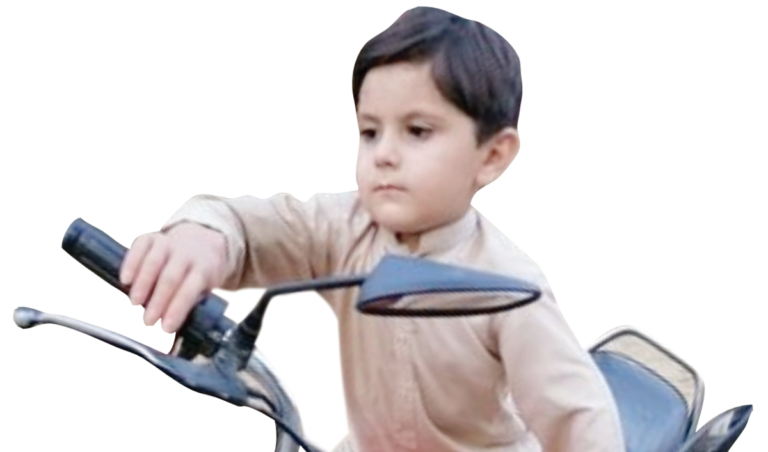When four-year-old Mohammed Sideeq was fitted with a multi-grip bionic arm last week — making him the youngest person in the world with such a limb — one of the first things he asked for was a new shirt: One with buttons that he could now fasten himself.
Sideeq lost his arm in December last year in an accident involving a fodder cutting machine.
According to the World Health Organization, about 30 million people around the world require prosthetic limbs, but fewer than 20 percent have them, and they tend to be costly and heavy, with limited to no movement.
“As he ran home with his right hand cut off, his mother just fainted,” Sideeq’s father, Mohammed Sadiq, who was not at home when the accident took place, told Arab News.

His uncle rushed Sideeq to a nearby hospital in Charsadda city in northwestern Pakistan, where doctors were unable to help him. The family then drove 50 km to a private hospital in Peshawar, the provincial capital of Khyber Pakhtunkhwa, where surgeons tried for three days to save the severed arm.
“When the doctors analyzed the hand, they said we will have to cut it from the body to save his life,” Sadiq said about the amputation.
Sideeq remained hospitalized for a month, which his father paid for with his savings and by selling his wife’s jewelry. The couple had no hope they would ever be able to afford a prosthetic arm for their son.
But a few months later, friends connected them to the Karachi-based startup BIONIKS, which provides orthotics and prosthetics.
The owners of the company reluctantly agreed to try to design a bionic arm for the child: Such limbs, controlled using only thoughts, have never been made for children as young as Sideeq before.
No one in the world has ever made a bionic arm for such a young age,” BIONIKS co-founder Anas Niaz told Arab News. “We knew this is nearly impossible, but Mohammed had high hopes to get a bionic arm.”
It was the young boy’s determination, he said, that motivated the team to attempt the impossible. The arm, fitted with sensors that enable users to move the prosthetic by thinking about making the movements, would cost at least 300,000 rupees ($1,800), which Sadiq could not afford. BIONIKS also helped the family find a donor, and last week Sideeq became the youngest known person to be fitted with a bionic arm.
Before him, the youngest kids with bionic arms were two eight-year-olds from the US and UK.
“Initially, it was difficult to train him to control a bionic arm with his brain and send signals to his fingers. But he is a very active kid who learned to use (the) bionic arm, and now Muhammad is using the arm perfectly,” Niaz said. “We made his arm lightweight and durable so that he can resume his activities quickly.”
Now Sideeq can play using his right arm again, and he can button his shirt too.
“I bought him new clothes and took him to the tailor,” the boy’s father said. “‘Make me cuff sleeves and not open sleeves, I will close the button because I have two arms now,’ my son proudly told the tailor.”
After Sideeq’s accident, days without weeping would be rare for his mother and caused more anguish for the father. But a few days ago, Sadiq said he was relieved to see his wife’s tears.
“She cried again a few days ago,” he said. “But this time, luckily, (tears) of happiness when Mohammed drove his bicycle using his bionic arm.”
Thanks to Arab News.


